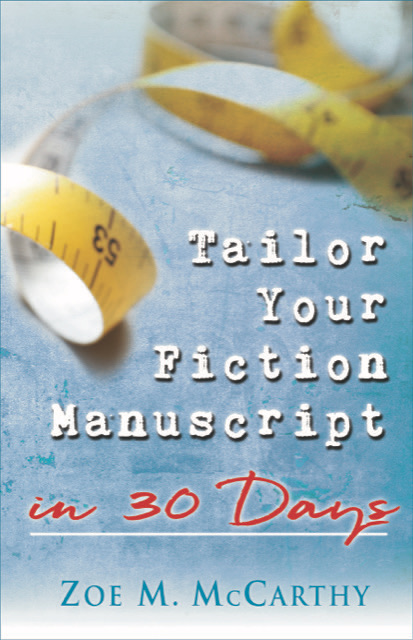

Tailor Your Fiction Manuscript in 30 Days is now available. See details below.
I decided to stop winging my use of hyphens and arm myself with some rules.
A Hyphen-Usage Test
Which four of these examples are incorrect? At the end of the test, see the analysis of why each example is correct or incorrect.
- ceiling-tall Christmas tree
- the small-delicate dancer
- a protein-eating diet
- the front-porch rocker
- he was soft-hearted about disciplining
- a lovingly-planted garden
- a well-timed event
- a twenty-four-hour job
- held for two- and three-hour sessions
- black and white cruiser
Analysis
First, my heading is correct—A Hyphen-Usage Test. Capitalize the first word and all hyphenated words in a title except articles (the), prepositions (with), and conjunctions (and). The only time a hyphenated word is not capitalized in a title is when the first word is a prefix that can’t stand alone (A Smile Is an Anti-aging Device).

- Correct. This noun and adjective unite to modify a noun. The noun following united words is key.
- Incorrect. Small and delicate don’t unite to describe the dancer; they each stand alone. So, “the small, delicate dancer” is correct.
- Correct. This noun and gerund unite to modify a noun (diet). Eating standing alone would suggest a fun diet!
- Correct. It’s not a front rocker. Front and porch unite to modify the rocker (noun).
- Incorrect. Here, soft-hearted doesn’t unite to modify a noun. The correct sentence is “He was soft hearted about disciplining.”
- Incorrect. Yes, this adverb and verb unite to modify garden, but two words with a leading adverb ending in -ly aren’t joined with a hyphen. Correct is “a lovingly planted garden.” An -ly adverb is what causes the different rule. However, if lovingly is in the middle of a multiple-word descriptor, such as “the far-from-lovingly-planted garden,” lovingly gets a hyphen.
- Correct. Well is not an adverb ending in -ly, and it unites with timed to modify a noun (event). But the adverb well in “the meeting was well timed” doesn’t use a hyphen. Here, “well timed” is not followed by a noun.
- Correct. This multiple-word modifier unites to describe a noun.
- Correct. Both two-hour and three-hour are adjective phrases modifying a noun and are written as in the example.
- Incorrect. When a color combination precedes a noun, it’s hyphenated. It’s a “black-and-white cruiser,” but “the cruiser was black and white.” Also, it’s a “blue-green pond.”
Sometimes hyphens are used for clarity. Consider: “We passed five mile markers.” This talks about the number of mile markers. If the markers were placed every five miles and we passed these markers, we’d write, “We passed five-mile markers.”
Which hyphenating rule is a problem in your writing?

Zoe McCarthy’s book, Tailor Your Fiction Manuscript in 30 Days, is a fresh and innovative refocusing of your novel or novella. Through a few simple—and fun—steps, Zoe helps writers take their not-ready-for-publication and/or rejected manuscripts to a spit-polish finish. Writing is hard work, yes, but it doesn’t have to be difficult. —Eva Marie Everson, best-selling and multiple award-winning author, conference director, president of Word Weavers International, Inc.
If you want to increase your chance of hearing yes instead of sorry or not a fit for our list at this time, this book is for you. If you want to develop stronger story plots with characters that are hard to put down, this book is for you. Through McCarthy’s checklists and helpful exercises and corresponding examples, you will learn how to raise the tension, hone your voice, and polish your manuscript. I need this book for my clients and the many conferees I meet at writer’s conferences around the country. Thank you, Zoe. A huge, #thumbsup, for Tailor Your Fiction Manuscript in 30 Days. —Diana L. Flegal, literary agent, and freelance editor
Tailor Your Fiction Manuscript is a self-editing encyclopedia! Each chapter sets up the targeted technique, examples show what to look for in your manuscript, then proven actions are provided to take your writing to the next level. Whether you are a seasoned writer or a newbie, you need this book! —Sally Shupe, freelance editor, aspiring author.


 RSS - Posts
RSS - Posts



That is so clear! I’ve always winged it, and not always successfully. It’s nice to know the rule. Thank you, Zoe. Why didn’t I ever hear that in an English class???
What you said, Jane, ditto for me.